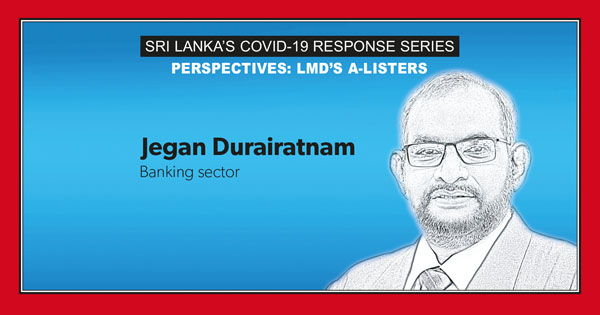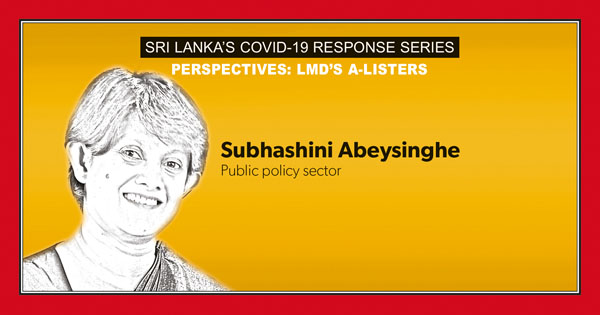LESSONS FROM A WORST CASE SCENARIO
A: The swift measures taken by the Government of Sri Lanka in responding to the global threat of COVID-19 has helped the nation stay afloat without falling into a greater calamity. By taking decisive economic decisions coupled with special initiatives – such as work from home (WFH) to support the corporate sector – has helped the country to sail through these rough waves.
However, the backlash of this deadly virus has undoubtedly caused immense stress on businesses and the national economy – it is affecting key sectors such as financial services, hospitality, tourism and so on. Having observed how other countries are fighting the pandemic, I must say that the untiring commitment and effort by all our frontline personnel to combat the virus from spreading across Sri Lanka is commendable.
Whilst the crisis has compelled businesses to rethink how they can offer services through a completely different platform, it has also impacted certain businesses severely, resulting in complete shutdowns. Nevertheless, we’re seeing definite steps being taken by the government, strongly supported by the corporate sector, to ease the lockdown and enable businesses to resume operations – albeit with less employees.
It’s been an immensely challenging phase for Sri Lanka and the economic reclamation will really be dictated by cautious optimism until things return to some sort of normalcy.
Q: What lessons have we – the business community – learnt from this crisis?
A: I believe that businesses both large and small have learnt much from this experience – perhaps a worst case scenario, which no one was prepared for.
One of the most valuable lessons has been the need to remain agile and flexible in order to adapt to sudden changes like the one brought on by this pandemic. Overnight, people have had to work from home and devise new systems to keep their businesses functioning. Mobilising employees and reaching out to customers is another challenge that companies have had to master while working from home.
This crisis has also taught us all that every business has to be responsible and should have a strong crisis communication plan to communicate to their stakeholders.
While it is perfectly fine to compete fiercely in the same market for the same slice of the pie, sectors must come together and collaborate in times of crisis, to ensure everyone retains their markets and profits thereby ensuring the survival of the industry.
Lastly, the experience has shown us that companies cannot operate in isolation; they have to be socially responsible and contribute to the nation.
Q: How do you see the ‘new normal’ for business panning out?
A: As we ease out of the lockdown, the nation has to take progressive steps to open up in keeping with the recommendations announced by the health authorities. The new normal will definitely see businesses devising more flexible and robust working systems online to be prepared to run smoothly even in a WFH scenario.
While Sri Lanka has been ahead of the region when it comes to adopting online technologies, we will see this being scaled up further – i.e. with greater adoption of e-healthcare, e-learning, e-commerce etc. Sri Lanka’s business community is highly resilient and will emerge stronger from this crisis.
As a nation however, we need to pull together in one direction while being mindful of the economically vulnerable population – so that we move steadily towards an economic recovery.
[wprpw_display_layout id=2]





